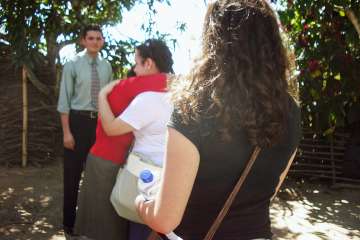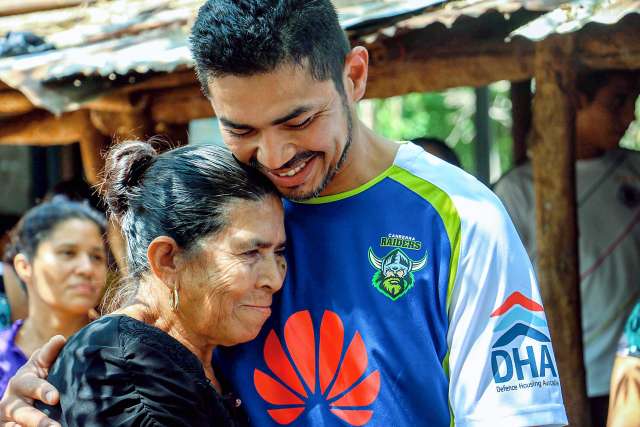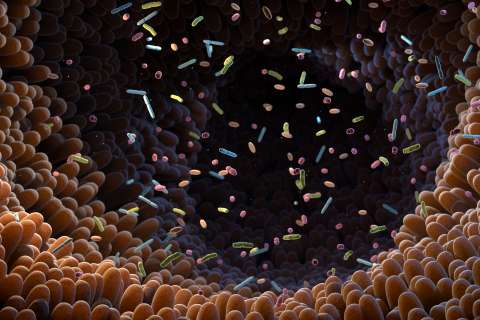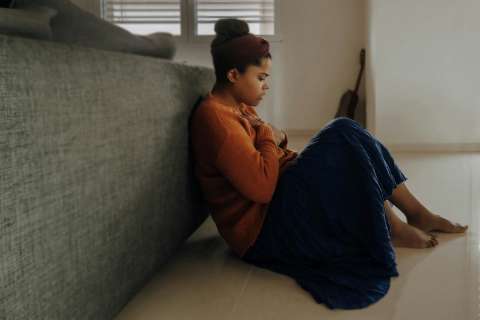By Elizabeth S. Barnert, MD
Dr. Elizabeth S. Barnert is associate professor of pediatrics in the David Geffen School of Medicine at UCLA and the author of "Reunion: Finding the Disappeared Children of El Salvador" (University of California Press, 2023). She works extensively with youths held in the juvenile legal system, and her research examines children affected by violence, family separation and incarceration.
I know something about the struggles of families who have been separated and scattered, either by conflict, natural disaster or by the choices of politicians that are far beyond their control. While in medical school and as a student of public health in the UC Berkeley-UC San Francisco Joint Medical Program between 2005 and 2009, I traveled to El Salvador to volunteer with the Salvadoran nonprofit Asociación Pro-Búsqueda de Niñas y Niños Desaparecidos (Pro-Search for the Disappeared Children) to help build a DNA bank to match — and hopefully reunite with their biological families — children who were forcibly “disappeared” during the 12 years of civil war in the 1980s and early ’90s.
So, my heart sank when I first read about children from Ukraine being taken from their homes, brought to Russia and “given” to Russian families. I was on a plane flying to a meeting and, with a feeling of dread spreading through my chest, I thought: Please, not again. It is the same tactic of war that we saw in El Salvador now playing out 40 years later in Ukraine.
My experience has taught me how being torn from their families in the midst of war will affect these children. They will experience the same fundamental issues of ambiguous loss, the same feelings of fear of abandonment, of identity confusion, of intense longing for their biological families as did the separated children of El Salvador. Depression, substance use and poor physical health are too often the outcomes for children who have experienced such profound trauma, and the health effects likely carry into adulthood.
Russia’s leaders have cloaked this outrage in the guise of it being a humanitarian effort, portraying themselves as charitable saviors rescuing vulnerable children from their war-torn country — a country that Russia, without provocation, invaded. They hide behind a banner of “children’s rights.” But the mass transfer of children into Russia is a clear violation of the Convention on the Rights of the Child and is a war crime.
How many times must history repeat itself?
As with the separated children of El Salvador, many of whom were put up for international adoption, DNA matching may be essential to reunite these families in the months and years ahead. Organizations such as DNA Bridge, a nonprofit coalition of scientists and human rights advocates that I co-founded in response to the Trump Administration’s U.S.-Mexico border family-separation policy to promote the humanitarian use of forensic DNA for family reunification, will be important participants in this effort.
I have witnessed first-hand the impact of this powerful tool. Expanding on the thesis that I wrote after working with Pro-Búsqueda, my 50 interviews and updated field notes culminated in the publication of the book ''Reunion: Finding the Disappeared Children of El Salvador," a chronicle of families’ experiences with military attacks, child disappearances, family separations, joyful reunions and the arduous process of reintegration.
While writing the book, I knew I’d gotten it right if I cried after finishing a chapter. The stories still tug at my heart, and I carry them forward in my current work.

Awareness of social justice issues was an element of my upbringing. My father, a Jewish psychiatrist from New York, instilled in me a love of science and big-picture thinking. My mother, who fled alone from Castro’s Cuba when she was 15 years old, is a social worker who, for much of her career, counseled troubled high school students, many of them first-generation Americans who butted heads with their immigrant parents over issues like cultural identity and gangs.
Every Saturday growing up, my father took me to the library and taught me about the importance of lifelong curiosity and learning. At restaurants or in the market, my mother, who left her home country with just five dollars in her pocket and knew profound poverty, would speak in Spanish to the busboys and cashiers about their lives. She taught me how to connect with people and understand the value of their stories and experiences.
There is something about one’s lengua materna — the language that your mother feeds you in, praises you in, admonishes you in — that makes that language and the culture and people it represents feel like home and instills empathy and understanding.
That is how it felt in El Salvador. I went there because I wanted to understand how war affects children’s health. I did not anticipate the profound impact it would have on my life, or how it would shape the person I would become. I am still haunted by stories I heard there. As the father of a disappeared child told me, to hear about war is terrible, but to experience it and live it in your skin is something entirely different. To receive their testimony, to hear their anguish, to see their tears and to absorb both their pain and their resilience — it changed me.
During an undergraduate year abroad in Latin America, I learned a chant that now plays in my head as I read about events in the world: “El pueblo unido jamás será vencido” — the people united will never be defeated. In spite of all they have gone through, the mothers and fathers and sons and daughters I’ve met and come to know in El Salvador endure in their calls for justice, identity and truth. They are among the most generous people I’ve ever known. Having survived a war together, they know they must look out for one another.
In the world today, it is a lesson we all could benefit from.




